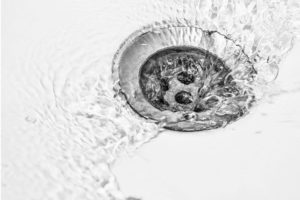Chlorine in Canadian Tap Water: Navigating the Facts and Myths for Health-Conscious Consumers
For many Victoria, BC residents, the tap is the go-to source for daily hydration and household tasks. However, discussions surrounding the presence of chlorine in Victoria, BC tap water have prompted questions about its impact on health. In this blog post, we’ll delve into the realities and misconceptions surrounding chlorine in City of Victoria water and its potential implications for health-conscious consumers.
Chlorine is a commonly used disinfectant in municipal water treatment facilities across Canada. Its primary role is to eliminate harmful bacteria and pathogens, ensuring that the water delivered to households is safe for consumption. While this practice is crucial for public health, concerns have been raised about the potential effects of chlorine on human health when present in drinking water.
The Benefits of Chlorine:
Microbial Protection
Chlorine serves as an effective disinfectant, targeting bacteria, viruses, and other microorganisms in Canadian tap water. This is particularly important in densely populated urban areas where the risk of waterborne diseases is higher.
Water Quality Assurance
The addition of chlorine to water treatment processes helps maintain stringent water quality standards. It acts as a safeguard against the presence of harmful pathogens that could pose significant health risks if left untreated.
Potential Concerns:
Disinfection Byproducts (DBPs):
The reaction of chlorine with organic matter in water can result in the formation of disinfection byproducts (DBPs) like trihalomethanes. Extended exposure to high levels of DBPs has been associated with certain health concerns. However, Canadian water authorities closely monitor and regulate DBP levels to ensure they remain within safe limits.
Taste and Odor
Some Canadians may find the taste and odor of chlorinated water less appealing. While this doesn’t necessarily imply health risks, individual preferences for drinking water can be influenced by these sensory factors.
Health Guidelines and Regulations in Canada: Health Canada, along with provincial and territorial health authorities, establishes and enforces guidelines for the acceptable levels of chlorine and its byproducts in Canadian tap water. These regulations are in place to protect public health and ensure that water treatment practices meet rigorous safety standards.
Addressing Concerns:
Water Filtration
If you have concerns about chlorine in your Canadian tap water, using a water filtration system can be an effective solution. Many filtration systems are designed to remove chlorine and its byproducts, offering an additional layer of assurance for those seeking cleaner and better-tasting water.
Alternative Disinfection Methods
Some municipalities in Canada are exploring alternative water disinfection methods, such as UV light or ozone treatment, to reduce the formation of certain disinfection byproducts. These alternatives provide options for those who prefer alternatives to chlorine.
In conclusion
While questions about chlorine in Victoria BC tap water have been raised, it’s crucial to recognize the vital role it plays in preserving public health. By adhering to established guidelines and regulations, Canadian water treatment facilities strive to balance effective disinfection with minimizing potential health risks. For individuals with specific preferences or concerns, exploring water filtration options can provide a practical solution for enjoying clean and safe drinking water. Staying informed and making choices based on reliable information is key in navigating any health-related considerations.
Call Clear Choice Plumbing today for any of your water filtration needs in Victoria BC or the Cowichan Valley.






